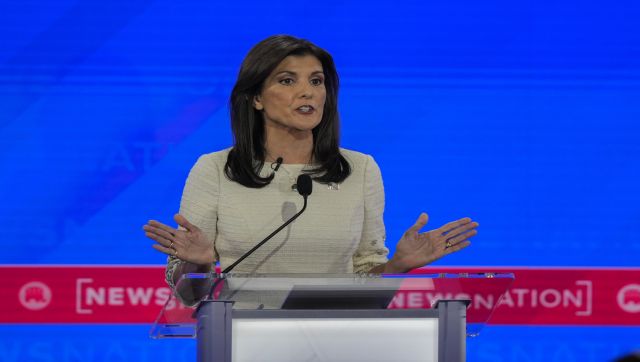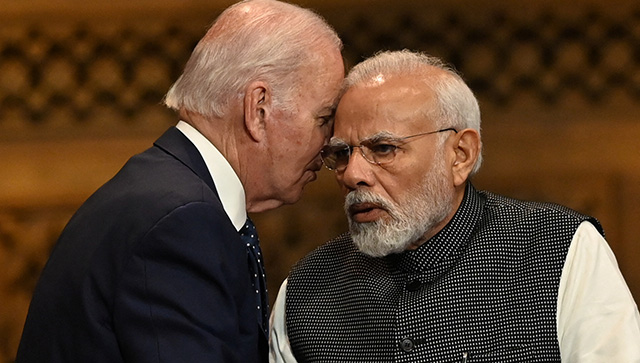For the record, Americans are not as idiotic as their politicians.
As the US barrels toward the 2 August deadline to raise the debt ceiling or risk defaulting on its financial obligations, it has yet to finalise a lasting solution. For now, however, the House of Representatives passed a compromise bill on Monday evening, which would cut federal spending by a total of $2 trillion over 10 years and raise the debt ceiling by more than $2 trillion.
The compromise bill goes to the Democratic-majority Senate for a vote on Tuesday, where it is expected to pass; President Barack Obama would then sign the bill shortly thereafter.
Still, the compromise bill doesn’t have many fans . Conservatives dislike it because it will cut defence spending; liberals hate it because proposed cuts to entitlement programs could hurt the poor. In an indication of how the compromise satisfies no one, both Ron Paul and Paul Krugman, speaking from opposite sides of the political spectrum, have blasted the compromise . And naturally, Republican presidential candidates are already using it for campaign fodder .
President Barack Obama proposed mixing spending cuts with raising taxes among the wealthiest Americans, and the latter has been a key stumbling point in the debt ceiling debate. How the compromise plan will address this issue is unknown-there’s been a curious and likely strategic silence on the topic. House Speaker John Boehner, a Republican from Ohio, has assured Republicans that tax hikes are not on the table, but some conservatives are already speculating that the compromise will result in higher taxes, which may invite yet another impasse.
Watching the partisan-and often illogical-debates around raising the debt ceiling has been at once confounding and infuriating. For months, Democratic and Republican political leaders have sparred over what has historically been a standard practice under both conservative and liberal presidents. (The US debt ceiling has been raised 140 times since World War II.) But because the federal deficit has became conflated with the wisdom or folly of Big Government spending, the ideological battle lines were drawn anew, and both sides have hunkered down.
No matter that there’s significant concern that failing to act could have significant consequences . The incessant partisan dickering on no-brainer legislation is just the latest example of how the voice of the American people continues to be roundly ignored.
Dear politicans: Please compromise
It’s clear that the majority of Americans believe the federal deficit is out of control . And while half of Americans, who seem to mistakenly conflate the debt ceiling with the deficit , disfavour a debt ceiling increase, various polls also find that the vast majority of the US public-including Republicans-want to see politicians reach a compromise because they believe that either an economic crisis, or a delay in Social Security and military benefit payments, would happen if a deal was not reached.
Poll after poll has also found that Americans favor Obama’s plan to cut spending and increase taxes as a way to draw down the federal debt. According to a CBS Newssurvey , for example, 66 percent of Americans, including half of Republicans, said that they wanted to see a mixed approach.
A Fox News poll found the same. According to the report, voters are “twice as likely to back a plan that includes both spending cuts andtaxincreases than one with just cuts. Thirty-five percent would support raising the limit if it is accompanied by a mix of both spending cuts and taxes increases, compared to 17 percent who would increase it if accompanied by cuts but no tax increases.”
Political ripple effects
Though public opinion is clear, partisan and ideological tiffs have prevented forward movement, and there could be political consequences to the political standoff.
Americans ultimately believe that this issue has been mined for political gain by both parties, with 63 percent of respondents agreeing that Republican officials are using the issue for political gain, and 49 percent agreeing that Democrats and the president are doing the same.
Polls by the likes of Fox News, CNN, and Pew Research Center/Washington Post have also found that if officials are unable to reach a compromise, most Americans would blame the Republican party. For example, the CNN poll found that 52 percent of respondents saw Obama as acting in a more responsible way during debt ceiling talks, while 63 percent said Republican congressional members had not.
So the message coming loud and clear from the American people is that they are concerned about the impacts of failing to raise the debt ceiling and they’d prefer that their political representatives act like grownups to seek genuine compromises. They’d also like to see a mix of spending cuts and tax increases, and they’re adamant about reducing the deficit.
Of course, you wouldn’t know it by watching the behaviour of America’s elected officials. Instead, Obama has shown uninspiring leadership by giving up on a plan that the American public actually appears to support, and Republicans have recklessly pushed a political agenda at nearly any cost.
Now that both sides have held their noses and are finally moving toward passing a compromise(d) bill, one political party-I’m looking at you, congressional Republicans-will be pronounced the victor. The real losers, however, are the American public, whose will has been sacrificed in the name of political brinkmanship.
Watch video of how US debt deal will affect world markets.
)
)
)
)
)